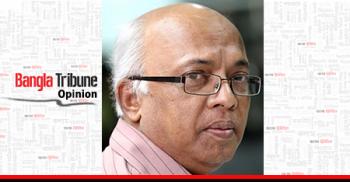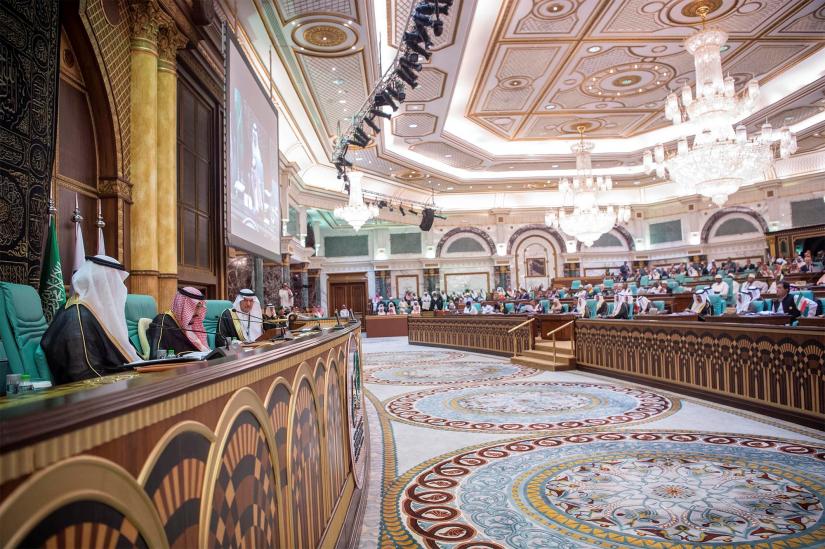 Regional and international organizations often fall by the wayside of history when they lose their relevance. And they cease to be relevant when they cannot or do not live up to the high ideals they have set for themselves.
Regional and international organizations often fall by the wayside of history when they lose their relevance. And they cease to be relevant when they cannot or do not live up to the high ideals they have set for themselves.
It was thus that the League of Nations succumbed to forces its pusillanimity generated. It was thus that the South-East Asia Treaty Organisation (SEATO) and Central Treaty Organisation (CENTO), shaped under American auspices to keep communism at bay, died unmourned deaths as the winds of change passed them by. When Iran, Pakistan and Turkey formed, in 1964, the Regional Cooperation for Development (RCD), little did their leaders realize that by the end of the decade the organization would lose meaning and its raison d’etre. Today, in these parlous times in terms of global realities, the South Asian Association for Regional Cooperation (SAARC) gasps for breath and might soon need to be put out of its misery because despite itself the gap between and among South Asian nations has only widened.
All of that leaves us dealing with the question of whether the Organisation of Islamic Cooperation (OIC) needs to carry on the way it has for the decades since it first held its summit in Rabat in 1969. The OIC has just concluded yet another inane summit, this one in Saudi Arabia’s Makkah, its participants mouthing the old time-worn platitudes relating to the solidarity of the Islamic Ummah and the requirement of cooperation between Muslim nations under its umbrella of comfort. The summit amounted to a half-hearted statement, a cliché, on the need for Islamic brotherhood. That was good for the cameras, for news agencies across the Muslim world.
But let us peer into the realities which assail the Islamic world the OIC purports to speak for.
Saudi Arabia remains a staunch ally of the United States and is currently cooperating with it and Israel in shaping a sinister programme of punishing Iran through sanctions and, if possible, through a full-scale military attack. Islamic unity, did you say?
The Saudis have been bombing Yemen to rubble, with tens of thousands of Yemeni men, women and children dying in the process. Nothing of Muslim bonding stops the fall of the bombs on those hapless Yemenis. The Saudi monarchy has paid little heed to global concerns about the atrocities it has unleashed in Yemen.
The OIC has failed to bring Pakistan and Afghanistan closer and have them turn a new page in their relations, with Kabul remaining firm in its belief that Islamabad has been sponsoring the instability which has kept Afghanistan in its vicious grip for years together. Additionally, the OIC has, apart from influencing Pakistan to accord diplomatic recognition to Bangladesh in 1974, never made any effort to convince Pakistan to apologise to Bangladesh for the genocide its soldiers committed in 1971. The contradictions within the OIC have made it hard for it to play the kind of role its pioneers expected it to. Its member nations, all formal Muslim states or home to majority Muslim populations, have a diversity of interests and policies which more often than not clash with and into one another. While its summiteers regularly voice their concerns about the sufferings of the Palestinians under Israeli occupation, they are reluctant to shape a concrete, credible strategy towards a solution that could be considered with seriousness by the international community. Riyadh and Tel Aviv are in a comfortable relationship with one another; and the Egyptians and Jordanians are not ready, for all their voluble expressions of Islamic solidarity, to ruffle the ties they have with the United States and Israel. Hardly any well-thought-through response has come from the OIC on the proposed (and now possibly dead) two-state solution in the Middle East.
The contradictions within the OIC have made it hard for it to play the kind of role its pioneers expected it to. Its member nations, all formal Muslim states or home to majority Muslim populations, have a diversity of interests and policies which more often than not clash with and into one another. While its summiteers regularly voice their concerns about the sufferings of the Palestinians under Israeli occupation, they are reluctant to shape a concrete, credible strategy towards a solution that could be considered with seriousness by the international community. Riyadh and Tel Aviv are in a comfortable relationship with one another; and the Egyptians and Jordanians are not ready, for all their voluble expressions of Islamic solidarity, to ruffle the ties they have with the United States and Israel. Hardly any well-thought-through response has come from the OIC on the proposed (and now possibly dead) two-state solution in the Middle East.
The OIC has had little or nothing to say about the persecution of the Kurds across a span of historical time. Turkey and Iraq have never been upbraided over the ill-treatment of a people who have been suppressed for decades, which was a good way of upending the concept of Islamic solidarity. And in all the years since the OIC assumed concrete shape, no question has ever been raised about the persecution of non-Muslims in predominantly Muslim countries. The sufferings of Ahmadiyyas and Christians in Pakistan and the terrorism of Islamist militants around the globe have not been firmly condemned by Muslim leaders. The OIC has been silent over the treatment of the Uighurs by the Chinese government. It has not reacted to the lynching of Muslims in India at the hands of the country’s cow vigilantes.
No summit of OIC leaders has ever advocated a growth of democracy in Muslim societies. No discussions have been there on the need for rule of law and transparency and accountability. Nothing remotely akin to a discussion on the mutilation of culture and heritage by authoritarian leaders in Muslim nations has taken place. The OIC had no stand on the trial and hanging of Saddam Hussein in violation of international law. It did not condemn the Nato operations which led to the gruesome death of Libya’s Muammar Gaddafi. It had nothing to say when Egypt’s Abdel Fattah al Sisi and Turkey’s Recep Tayyep Erdogan jailed hundreds of dissidents threatening their dictatorial rule. One of the most shocking of silences from the OIC relates to Jamal Khashoggi. It has never occurred to the organization to condemn the killing of the journalist or demand that the Saudis come up with the truth behind the crime.
There was little sign of any head of state or government at the just-concluded OIC summit questioning the move by Saudi Arabia, Bahrain and the United Arab Emirates to impose a blockade around Qatar. It was plain hypocrisy at work when the summit, presided over by King Salman, stressed the cause of the Muslim Ummah when it was his part of the Ummah going out on a limb to punish Qatar over issues that should reasonably have been thrashed out around a diplomatic table.
And has any Muslim country, at OIC summits or outside them, at any time pondered the issue of the presence of monarchies in Islamic societies despite the fact that such monarchies militate against the fundamental principles of Islam? Jordan, Morocco, Kuwait, Saudi Arabia, Brunei and the Gulf states are home to absolutely anti-Islam politics in the shape of their absolutist royal families. The Prophet of Islam had little room for kings and queens in the propagation of his faith, would have nothing come between God and his Creation; and yet these out-of-touch, decadent Muslim monarchs take it upon themselves to speak for the beliefs of the subjects they rule.
The OIC has declined into being an annual gala reunion of Muslim heads of state and government. Its deliberations are hollow. Policies are conspicuous by their absence, with little or no meat on the OIC’s bones. It is not taken seriously by those it pretends to speak for. It is in a state of worsening health.
Perhaps it will pass into a state of the comatose before breathing its last?
Syed Badrul Ahsan is a journalist and author of biographies of Bangabandhu Sheikh Mujibur Rahman and Tajuddin Ahmad.
 Opinion
Opinion
41389 hour(s) 26 minute(s) ago ;
Morning 08:21 ; Monday ; Jul 07, 2025
The growing irrelevance of the OIC
Send
Syed Badrul Ahsan
Published : 16:42, Jun 02, 2019 | Updated : 19:01, Jun 02, 2019
Published : 16:42, Jun 02, 2019 | Updated : 19:01, Jun 02, 2019
0 ...0 ...
/zmi/
Topics: Syed Badrul Ahsan
***The opinions, beliefs and viewpoints expressed in this article are those of the author and do not reflect the opinions and views of Bangla Tribune.
- KOICA donates medical supplies to BSMMU
- 5 more flights to take back British nationals to London
- Covid19: Rajarbagh, Mohammadpur worst affected
- Momen joins UN solidarity song over COVID-19 combat
- Covid-19: OIC to hold special meeting
- WFP begins food distribution in Cox’s Bazar
- WFP begins food distribution in Cox’s Bazar
- 290 return home to Australia
- Third charter flight for US citizens to return home
- Dhaka proposes to postpone D8 Summit
Unauthorized use of news, image, information, etc published by Bangla Tribune is punishable by copyright law. Appropriate legal steps will be taken by the management against any person or body that infringes those laws.
Bangla Tribune is one of the most revered online newspapers in Bangladesh, due to its reputation of neutral coverage and incisive analysis.
F R Tower, 8/C Panthapath, Shukrabad, Dhaka-1207 | Phone: 58151324; 58151326, Fax: 58151329 | Mob: 01730794527, 01730794528


